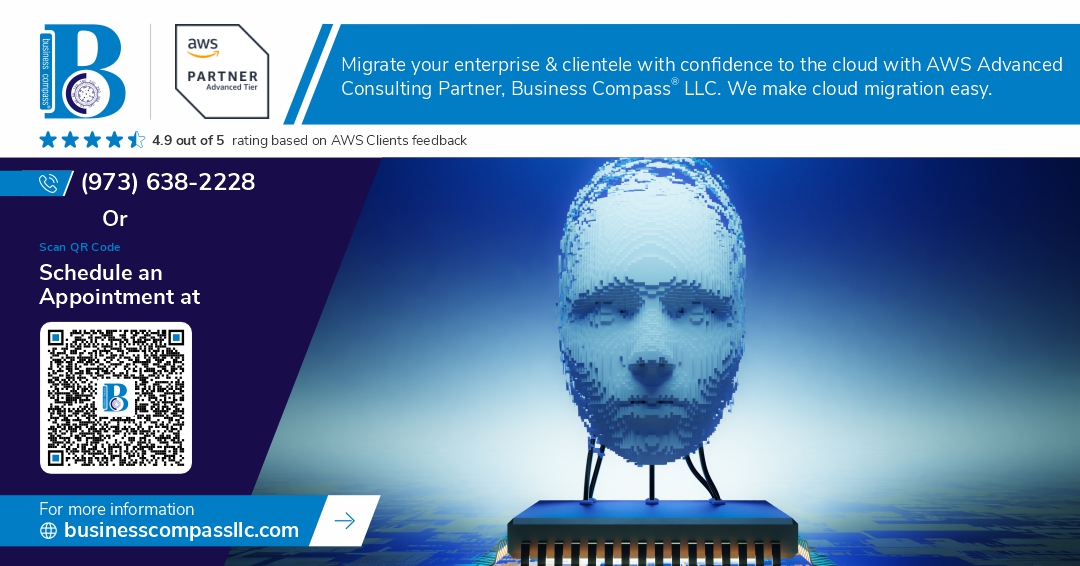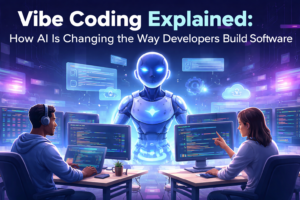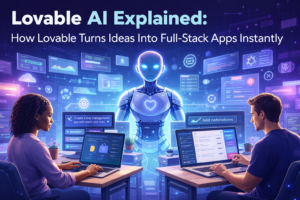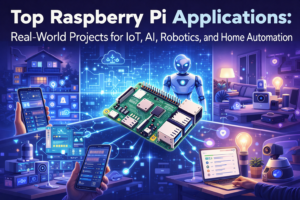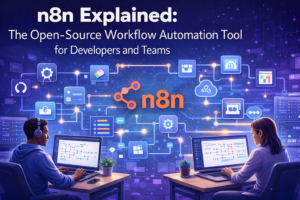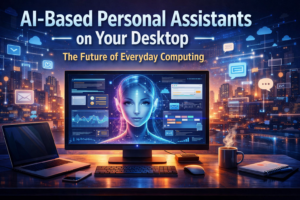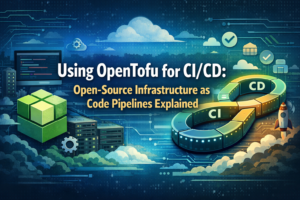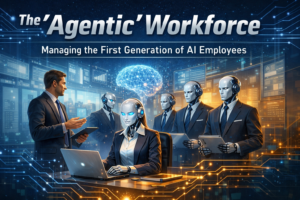Have you ever wished for an AI assistant that truly understands you and your needs? One that doesn’t just respond to commands, but anticipates your desires and adapts to your unique situation? Enter MCP (Modular Cognitive Programs) – the game-changing technology that’s revolutionizing the world of artificial intelligence. 🚀
Imagine an AI that doesn’t just process information, but comprehends context and evolves with each interaction. MCP is making this a reality, powering a new generation of smart, intuitive, and context-aware AI agents. From personal assistants to industrial automation, MCP is transforming how we interact with technology, making it more human-like and efficient than ever before.
In this blog post, we’ll dive deep into the world of MCP, exploring its foundations, benefits, and real-world applications. We’ll uncover how this groundbreaking technology is shaping the future of AI and why it’s essential for anyone interested in the cutting edge of artificial intelligence. So, buckle up as we embark on a journey to understand the power of MCP and its potential to create smarter, more adaptive AI agents that could change our world forever. 🌟
Understanding MCP: The Foundation of Smarter AI
Defining MCP: Unveiling the Concept
MCP, or Multimodal Context Processing, is a groundbreaking approach in artificial intelligence that enables AI agents to understand and process information from multiple sensory inputs and contextual cues. This revolutionary concept allows AI systems to perceive and interpret their environment more holistically, much like humans do.
| MCP Component | Description |
|---|---|
| Multimodal Input | Processes data from various sources (text, audio, visual) |
| Context Integration | Combines inputs with historical and environmental data |
| Adaptive Learning | Continuously updates knowledge based on new information |
Core Components of MCP
-
Multimodal Perception:
- Visual processing
- Natural language understanding
- Audio analysis
-
Context Integration:
- Temporal awareness
- Spatial recognition
- Situational analysis
-
Adaptive Decision-Making:
- Real-time learning
- Dynamic response generation
- Contextual prioritization
How MCP Differs from Traditional AI Approaches
MCP represents a significant leap forward from traditional AI methods. Unlike conventional systems that often operate in isolated domains, MCP-powered AI agents can:
- Process multiple input types simultaneously
- Understand complex, nuanced contexts
- Adapt behavior based on changing environments
This advanced capability allows MCP-enabled AI to provide more accurate, relevant, and personalized responses in various applications. As we explore the power of context-awareness in AI agents, we’ll see how these fundamental differences translate into tangible benefits for users and businesses alike.
The Power of Context-Awareness in AI Agents
Interpreting Complex Environments
MCP-powered AI agents excel at interpreting complex environments by leveraging contextual information. These agents can process and analyze multiple data streams simultaneously, allowing them to form a comprehensive understanding of their surroundings. This capability is crucial in scenarios where decisions must be made based on intricate, interconnected factors.
| Aspect | Traditional AI | MCP-Powered AI |
|---|---|---|
| Data Processing | Limited to predefined parameters | Integrates diverse data sources |
| Contextual Understanding | Minimal | Comprehensive |
| Adaptability | Static responses | Dynamic, situation-aware reactions |
Adapting to User Needs in Real-Time
One of the most significant advantages of context-aware AI agents is their ability to adapt to user needs in real-time. By continuously analyzing user behavior, preferences, and environmental factors, these agents can:
- Personalize responses and recommendations
- Anticipate user requirements before they are explicitly stated
- Adjust their interaction style to match user preferences
This adaptability ensures a more intuitive and user-friendly experience across various applications.
Enhancing Decision-Making Capabilities
Context-awareness significantly enhances the decision-making capabilities of AI agents. By considering a broader range of factors and their interrelationships, MCP-powered AI can:
- Evaluate complex scenarios more accurately
- Weigh multiple options against contextual constraints
- Predict potential outcomes with greater precision
- Suggest more nuanced and appropriate solutions
Reducing Errors and Misinterpretations
With their advanced contextual understanding, MCP-enabled AI agents are better equipped to reduce errors and misinterpretations. This improvement stems from:
- More accurate interpretation of ambiguous inputs
- Better recognition of contextual cues that might alter the meaning of user requests
- Enhanced ability to detect and account for potential biases or inconsistencies in data
As we explore the key benefits of MCP-powered AI agents, we’ll see how these context-aware capabilities translate into tangible advantages across various applications and industries.
Key Benefits of MCP-Powered AI Agents
Improved Accuracy and Reliability
MCP-powered AI agents demonstrate significantly higher accuracy and reliability compared to traditional AI systems. By leveraging context awareness, these agents can make more informed decisions based on a holistic understanding of their environment and user needs.
| Aspect | Traditional AI | MCP-Powered AI |
|---|---|---|
| Context Understanding | Limited | Comprehensive |
| Decision-Making | Rule-based | Adaptive |
| Error Rate | Higher | Lower |
| Consistency | Variable | More Consistent |
Enhanced User Experience and Engagement
The context-aware nature of MCP-powered AI agents leads to a more personalized and intuitive user experience. These agents can:
- Anticipate user needs based on context
- Provide more relevant suggestions and responses
- Adapt their communication style to user preferences
- Offer proactive assistance without explicit prompts
Streamlined Task Completion
MCP-enabled AI agents excel at streamlining complex tasks by:
- Breaking down multi-step processes into manageable sub-tasks
- Prioritizing actions based on contextual importance
- Automatically handling routine subtasks without user intervention
- Adapting to changes in task requirements or environment
Increased Efficiency in Resource Utilization
By understanding context, MCP-powered AI agents can optimize resource allocation and usage. This leads to:
- Reduced computational overhead
- More efficient use of data storage and processing
- Improved energy efficiency in AI operations
- Better scalability of AI systems
Potential for Continuous Learning and Improvement
MCP-powered AI agents have a unique advantage in their ability to learn and improve continuously. This is achieved through:
- Real-time feedback incorporation
- Contextual pattern recognition
- Adaptive learning from user interactions
- Continuous refinement of decision-making processes
These benefits collectively contribute to the creation of smarter, more efficient, and user-friendly AI systems. As we explore further, we’ll see how these advantages translate into real-world applications across various industries.
Implementing MCP in AI Systems
Technical Requirements and Considerations
Implementing MCP in AI systems requires careful consideration of technical requirements. Here’s a list of key factors to keep in mind:
- Robust data processing capabilities
- Advanced machine learning algorithms
- Scalable infrastructure
- Real-time processing capabilities
- Secure data handling
To ensure successful implementation, consider the following table comparing traditional AI systems with MCP-enabled systems:
| Feature | Traditional AI | MCP-Enabled AI |
|---|---|---|
| Context awareness | Limited | Comprehensive |
| Adaptability | Static | Dynamic |
| Decision-making | Rule-based | Context-driven |
| Data processing | Batch | Real-time |
| Scalability | Limited | Highly scalable |
Integration with Existing AI Frameworks
Integrating MCP with existing AI frameworks requires a strategic approach. Start by identifying compatible components within your current infrastructure. Next, develop APIs and connectors to facilitate seamless communication between MCP modules and existing systems. Ensure that data flows smoothly between different components, allowing for real-time context updates and decision-making.
Overcoming Challenges in MCP Implementation
While implementing MCP offers significant benefits, it comes with its own set of challenges. One major hurdle is handling the increased complexity of context-aware systems. To address this, focus on developing modular architectures that allow for easier maintenance and updates. Additionally, invest in robust testing frameworks to ensure the reliability and accuracy of context-driven decisions.
Another challenge lies in managing the vast amounts of data required for effective context awareness. Implement efficient data storage and retrieval systems, and consider utilizing edge computing for reduced latency in real-time applications. With these considerations in mind, organizations can successfully navigate the implementation of MCP in their AI systems, paving the way for more intelligent and adaptive AI agents.
Real-World Applications of MCP-Enabled AI
Customer Service and Support
MCP-enabled AI agents are revolutionizing customer service by providing personalized, context-aware support. These intelligent systems can:
- Analyze customer history and preferences
- Understand the current issue in context
- Provide tailored solutions based on past interactions
Here’s a comparison of traditional vs. MCP-powered customer service:
| Feature | Traditional AI | MCP-Powered AI |
|---|---|---|
| Context awareness | Limited | Comprehensive |
| Personalization | Basic | Advanced |
| Problem-solving | Rule-based | Adaptive |
| Customer satisfaction | Moderate | High |
Personal Virtual Assistants
MCP technology is enhancing personal virtual assistants, making them more intuitive and responsive. These AI companions can:
- Learn user habits and preferences over time
- Anticipate needs based on context and patterns
- Offer proactive suggestions and reminders
Healthcare Diagnostics and Patient Care
In healthcare, MCP-powered AI is improving diagnostics and patient care through:
- Comprehensive analysis of medical histories
- Integration of real-time patient data
- Context-aware treatment recommendations
Smart Home and IoT Devices
MCP is transforming smart homes and IoT devices by:
- Enabling seamless device integration
- Adapting to user routines and preferences
- Optimizing energy usage based on occupancy patterns
These advancements in MCP-enabled AI are paving the way for more efficient, personalized, and context-aware technologies across various sectors. As we explore further, we’ll see how implementing MCP in AI systems can lead to even more groundbreaking applications.
The Future of AI with MCP
Evolving Capabilities and Potential
As MCP-powered AI continues to advance, we can expect significant leaps in AI capabilities. These systems will become increasingly adept at understanding and adapting to complex, multi-faceted contexts, leading to more intuitive and human-like interactions. Here’s a glimpse into the potential future capabilities:
- Enhanced Natural Language Processing
- Improved Decision-Making in Dynamic Environments
- Seamless Multi-Modal Integration
- Personalized Learning and Adaptation
| Capability | Current State | Future Potential |
|---|---|---|
| Context Understanding | Limited to specific domains | Comprehensive, cross-domain understanding |
| Adaptability | Pre-programmed responses | Real-time learning and adjustment |
| Decision-Making | Rule-based | Nuanced, context-aware choices |
| User Interaction | Scripted dialogues | Natural, flowing conversations |
Ethical Considerations and Responsible Development
With great power comes great responsibility. As MCP-enabled AI becomes more sophisticated, it’s crucial to address ethical concerns and ensure responsible development practices. Key considerations include:
- Data privacy and security
- Transparency in decision-making processes
- Bias mitigation and fairness
- Accountability for AI actions
Impact on Various Industries and Sectors
MCP-powered AI is poised to revolutionize numerous industries, offering tailored solutions and unprecedented efficiency. Some sectors that stand to benefit significantly include:
- Healthcare: Personalized treatment plans and improved diagnostics
- Finance: Advanced risk assessment and fraud detection
- Education: Adaptive learning systems and personalized curricula
- Customer Service: Hyper-personalized support and predictive assistance
The future of AI with MCP holds immense promise, but it also demands careful consideration of its implications and responsible implementation to harness its full potential.
MCP technology represents a significant leap forward in the development of AI agents, enabling them to understand and adapt to complex contexts with unprecedented efficiency. By integrating MCP into AI systems, we unlock a new realm of possibilities for creating smarter, more responsive, and truly context-aware artificial intelligence. The benefits of MCP-powered AI agents, from enhanced decision-making to improved user experiences, are already making waves across various industries and applications.
As we look to the future, the potential of MCP in AI is boundless. By continuing to refine and expand upon this technology, we can expect to see even more sophisticated AI agents that can seamlessly interact with humans and navigate intricate real-world scenarios. Embracing MCP is not just about improving AI capabilities; it’s about shaping a future where artificial intelligence can truly understand and respond to the nuances of our world, leading to more intuitive, efficient, and impactful AI solutions across all sectors of society.










